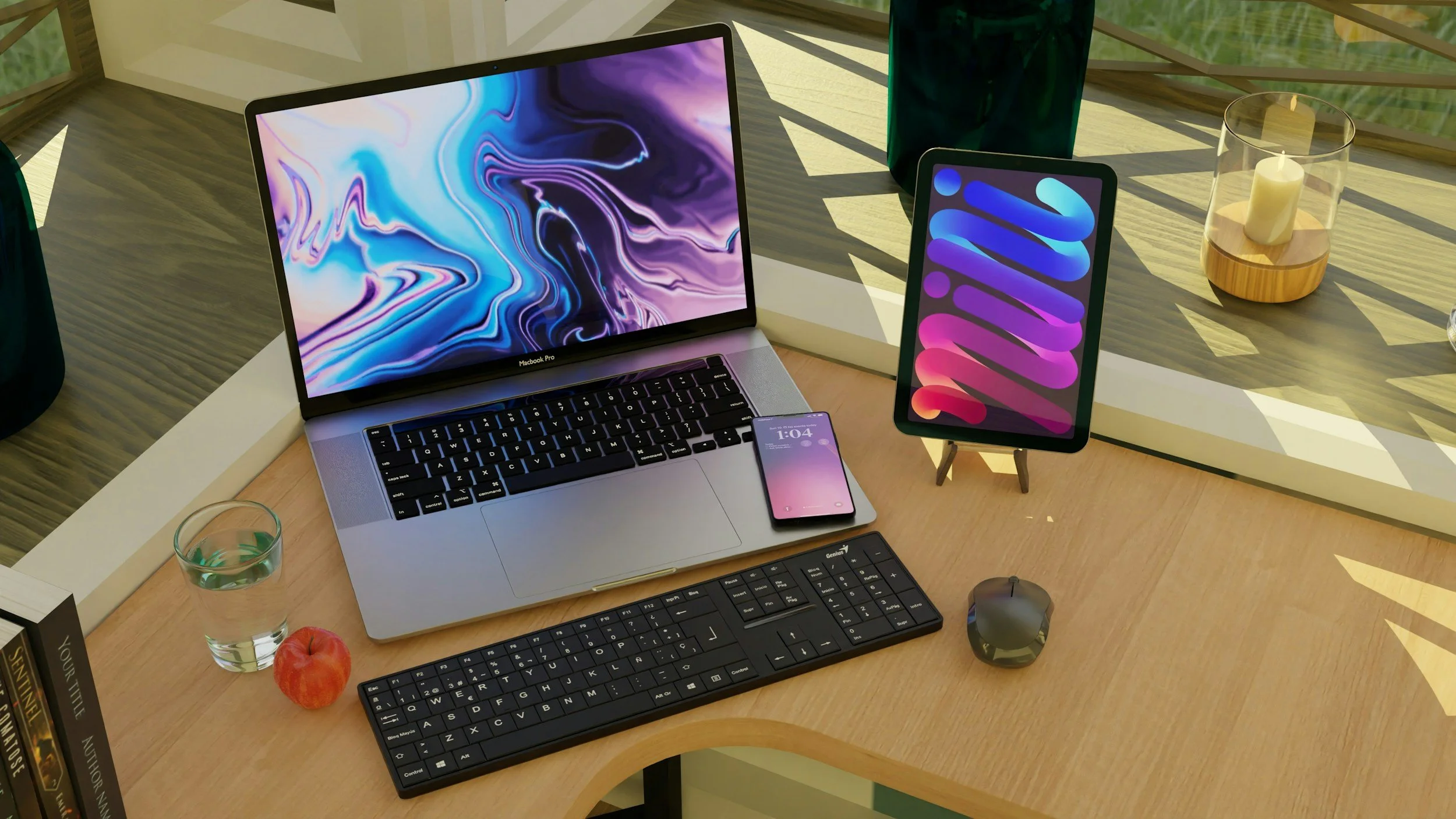What is a Firewall and Does My Business Need One?
We’re big believers in cybersecurity being a practice, just as much as the coming together of technical tools. Regardless, one of three tools we recommend to everyone is firewalls. Whether you’re a business owner, creator or run a non-profit, they are a solid and worthy line of defence against cyber threats.
Understanding the options, however, can be overwhelming. In this blog, we will break down firewall types and solutions to help you find the right one for you.
Why do I need a Firewall? And what even is it?
A firewall is a security system that monitors and controls incoming and outgoing network traffic based on predetermined security rules. It acts as a barrier between your trusted internal network and external networks (e.g. the internet) that we’d generally consider ‘untrusted’. Think of it as the security guard checking IDs before allowing people to enter the party.
Firewalls are essential because:
They protect sensitive customer and business data
They help maintain compliance with regulations like GDPR, HIPAA, or PCI DSS
They prevent unauthorised access to your network
They can block malware and ransomware attacks
What is the Best Firewall for my Business?
Let’s go through your options in terms of the different types of some popular versions. We thought we’d include some of the biggies but please note that elodie cybersecurity is not affiliated with, nor has conducted indepth testing on all of the below options - so please research and consider at your own risk.
Built-in Operating System Firewalls
What they are: Firewall software that comes pre-installed with operating systems like Windows (Windows Defender Firewall), macOS (macOS Firewall), and many Linux systems.
Pros: Free, relatively easy to configure through system settings, and require no additional installation. They provide basic protection against unauthorised access and can be configured to allow or block specific applications.
Cons: Generally offer fewer features than dedicated firewall solutions, limited management options for business environments, and may not provide advanced threat detection.
Best for: Very small businesses with limited budgets, startups, or as an extra layer of security alongside more robust solutions.
Hardware Firewalls
What they are: Physical devices that sit between your internet connection and your network.
Pros: Protect all devices on your network, require minimal setup from individual users, and provide centralised management.
Cons: More expensive upfront, may require IT expertise to configure properly, and don't protect devices when they're used outside your office network.
Best for: Businesses with a physical office where multiple employees use the same network.
Options:
Cisco Meraki Go
Price range: c. £300-500
Why it's good: Extremely easy to set up and manage through a mobile app. Cloud-managed with automatic updates and no technical expertise required.
Limitations: Fewer advanced features than enterprise solutions, requires ongoing subscription.
Ubiquiti UniFi Security Gateway
Price range: c. £115-235
Why it's good: Excellent price-to-performance ratio, integrates with other Ubiquiti networking equipment, and provides a comprehensive dashboard.
Limitations: Setup requires some networking knowledge, fewer built-in security features than competitors.
Fortinet FortiGate 40F
Price range: £110-155
Why it's good: Offers enterprise-level security features at a small business price point. Includes a unified threat management system with good throughput speeds and simple management interface.
Limitations: Some advanced features require additional subscription fees.
Software Firewalls
What they are: Programs installed on individual devices like computers, phones, and tablets.
Pros: Generally less expensive, can be customised for each device, and protect devices wherever they go.
Cons: Need to be installed and managed on each device separately, may slow down system performance, and depend on users to maintain them properly.
Best for: Very small businesses, solopreneurs, or companies with primarily remote workers.
Options:
Bitdefender Small Office Security
Price range: £55-70/year for 5-20 devices
Why it's good: Combines firewall with antivirus, ransomware protection, and data backup. Easy to manage remotely with minimal impact on performance.
Limitations: Limited advanced networking features.
ESET Endpoint Security
Price range: c. £200/year for 5 devices
Why it's good: Low system impact, high malware detection rates, and includes features like web filtering and device control.
Limitations: Interface can be complex for non-technical users.
Cloud Firewalls (Firewall-as-a-Service)
What they are: Security services hosted in the cloud that filter your internet traffic before it reaches your network.
Pros: No hardware to maintain, easy to scale, protect remote workers, and are regularly updated by the provider.
Cons: Require ongoing subscription fees and depend on internet connectivity and the provider's reliability.
Best for: Businesses embracing cloud services, those with limited IT resources, or companies with a distributed workforce.
Options:
Cloudflare for Small Business
Price range: £156/month
Why it's good: Comprehensive protection including DDoS mitigation, global CDN, and bot management. Simple to set up and requires no hardware.
Limitations: Monthly cost adds up over time.
Perimeter 81
Price range: £6-12/user/month
Why it's good: Combines firewall with VPN services and network segmentation. Excellent for protecting remote workers and easy to scale.
Limitations: More focused on access control than deep packet inspection.
Next-Generation Firewalls (NGFW)
What they are: Advanced firewalls that go beyond traditional packet filtering to include features like application awareness, intrusion prevention, and advanced threat protection.
Pros: Provide comprehensive protection, can identify and block sophisticated threats, and often include additional security features.
Cons: More expensive, more complex to configure, and may require specialised knowledge to use effectively.
Best for: Businesses handling sensitive data, those in regulated industries, or companies that need advanced threat protection.
Options:
SonicWall TZ270
Price range: £350-510
Why it's good: Offers comprehensive NGFW features including deep packet inspection, intrusion prevention, and advanced threat protection. User-friendly interface with good performance for small businesses.
Limitations: Advanced security services require additional subscription costs.
WatchGuard Firebox T20/T40
Price range: £275-585
Why it's good: All-in-one security solution with application control, intrusion prevention, and advanced malware protection. Includes simple, centralised management and strong reporting capabilities.
Limitations: Initial setup can be complex for those without networking experience.
Which Firewall is right for my business?
Still confused? When selecting a solution, consider these factors:
Business size and growth plans: Choose a solution that can scale with your business.
Budget: Balance upfront costs with ongoing subscription fees.
Technical expertise: Select a solution that matches your team's abilities or consider managed services.
Remote work needs: Ensure protection extends to employees working outside the office.
Compliance requirements: Depending on your industry and any necessary regulations, make sure the solution meets them.
How do I properly set up a Firewall for my business?
Once you've selected a firewall, follow these steps:
Get to know the default security settings and customise as needed
Regularly update your firewall software or firmware
Create and enforce strong password policies
Segment your network to limit potential damage from breaches
Train employees on basic security practices
Consider complementary security measures like antivirus software and regular data backups
Remember that no security solution is perfect, and a firewall is just one component of a comprehensive security strategy. Regular updates, employee training, and layered security approaches will help ensure your business stays protected in an ever-evolving threat landscape.
Let’s keep learning. Sign up to The Key, a free 5 day course in cybersecurity for small businesses
The program is designed for those who own and run small businesses, wanting to strengthen their defences but are unsure where to start.
Over the space of one week, the program will guide you to build in solutions to build resilience, professionalise your brand and protect your business and it’s clients.
No matter your tech level, these are the essential, bare minimum kind of defences you need to pay attention to for a successful year ahead.
DISCLAIMER: The information provided on this blog is for general informational purposes only. While we strive to keep the information up to date and accurate, we make no representations or warranties of any kind, express or implied, about the completeness, accuracy, reliability, suitability, or availability of the information contained on this blog. Any reliance you place on such information is strictly at your own risk. We will not be liable for any losses or damages in connection with the use of our blog. This blog may contain links to external websites that are not provided or maintained by us. We do not guarantee the accuracy, relevance, timeliness, or completeness of any information on these external websites. We reserve the right to modify, update, or remove the contents of this blog at any time without notice.










We hope it never happens to you but here’s how to handle a website hack and mitigate the negative effects.